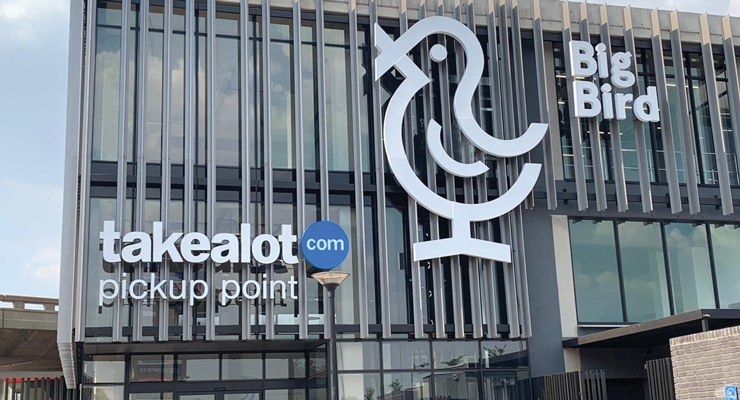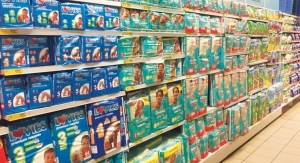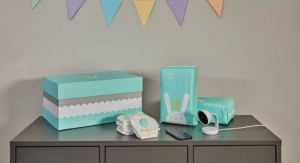11.08.19
Raymond Chimhandamba,
Handas Consulting (Africa Market Specialist), Johannesburg, South Africa
What Jumia Thinks
According to McKinsey, Africa’s booming e-commerce sector has the ability not only to jump start small businesses but also to help large companies enter a vibrant market full of energized consumers. McKinsey goes on to say that “Africa has one of the most digitally connected populations on the planet, with 400 million internet users.” Africa’s number of connected population is a global second only after China. Sacha Poignonnec, co-founder and co-CEO of Jumia, Africa’s largest online and internet group, explains that e-commerce in Africa is great for large and small companies alike.
He mentions that one of the biggest challenges for an online business in Africa is delivering the goods, driven by a prevalent poor address system. Companies in the logistics space in Africa like DHL have long adapted to this challenge. Anywhere else on the globe, it would be insufficient to say that the delivery address is “behind Kigali Mall next to the Church with a blue roof,” but with such an address description, companies like DHL are quite happy and capable of making a delivery in Africa. This points to good adaptation to one’s operating environment.
The Diaper Consumer as an Online Consumer
Poignonnec goes on to say, “Consumers in Africa want the same thing as consumers everywhere else: they want good products at a good price and good quality. It’s the same thing. I speak to a lot of business partners who are thinking about Africa and how different it is. There are some things which are the same everywhere. And for us, consumers want to save time and save money.” If hygiene manufacturers can take a page from his book, they would save themselves a lot of pain and suffering in business. Manufacturers too often have the mindset that Africa is different, Africa is poor. Let us have a different product—a cheaper option—for Africa. By all means, go ahead and optimize the product for the local market, but is important to still bear in mind that any mother loves her child the same, that any mother wants a good diaper for her child whether she lives in a shack or a mansion. If your team has that mindset from the start, they will design a product that is fit for the market. They will ask the right questions from the start. And there is a higher chance that they will get the right answers and end up with a product that the consumer requested. In my book, I call it respect for the customer. And that respect is paid back in higher profits and market share.
There are enough examples of customers that have benefited from this approach. Unicharm’s decision to take a pull-up diaper formats for a poor population has paid off. Hayat made a winning decision to build a factory from scratch in Nigeria. Sunda’s approach to understanding the local market quickly and deeply in Kenya is also paying off well as they are stealing marketshare quite quickly from the top three market leading brands. Ontex, having faced challenges in another market, took the bold decision to set up in Ethiopia.
Coming back to the consumer as an online customer, I would ask myself: What is possible with the online consumer for the diaper category? What signs can one pick up on that can be leveraged to achieve success? From where I am sitting, a few signs show direction. Jumia has been very successful with their online business in the region, prompting other players in the FMCG space to seek partnerships with them, from liquor players like Pernot Ricard, to brick and mortar retailers like Carrefour and many others. What is possible for a diaper brand if you partnered with the biggest e-commerce player on the continent? And if you ignored the borders and focused your efforts on all the urban hubs on the continent where Jumia plays? South African brand owners have used the same strategy to get into new markets by simply piggy-backing on the South African retailers like PnP, Shoprite, Spar and Massmart that were seeking better opportunities outside South African borders further up North.
According to WorldAtlas website, Africa’s 15 biggest cities include Lagos and Cairo which both have north of 20 million people. Lagos is Nigeria’s largest city and the country’s economic capital. Located on the Atlantic Ocean’s coastline, it’s the seventh fastest growing city in the world with annual growth of 2-3%. “Lagos State generates $90 billion in goods and services annually. If it were a country, the Lagos State economy would be the 7th largest in Africa.” Cairo is Egypt’s largest city and the nation’s capital. Cairo is also Egypt’s economic hub generating two-thirds of the country’s GDP.
South Africa, Kenya and Nigeria lead SSA’s internet penetration as well as online activity. In South Africa’s 2018’s black Friday, South Africa’s leader in online purchases, Take-a-lot, reports that $14 million was spent in just one day. Of that spend, the third biggest purchased item was Pampers diapers.
The founder of Jumia also makes a surprising statement. “In terms of consumer segments, what is surprising is we have a lot of consumers who are not necessarily in the big urban areas. From an outsider, one could think, ‘OK, e-commerce is for the inhabitants of Lagos and Cairo and Nairobi.’ We have a lot of consumers who live in the small villages and in the small cities. Why? Because they see a lot of choice on Jumia, and they don’t really have that choice in the areas where they live. For them, it’s very difficult to have access to the goods.”
E-commerce therefore gives the region a chance to leapfrog and by pass certain infrastructural challenges. This for me is also not too surprising. I have seen consumers who are teachers in rural settings carry Jumbo packs of premium diaper brands as they get off the bus from the city. Just when you thought affordability is a big issue, then you get such surprises. This defies the logic that we are used to about small pack sizes—that small packs are ideal for urban set ups where the consumer is able to go daily to the neighborhood grocer. For the rural teacher, a bulk purchase once at month end might make more sense.
He also argues that e-commerce offers that opportunity for small businesses to scale up and slowly, organically and without requiring too much capital. The required investment is small and yet you reach many customers. He shares the example of one of their customers in Tunisia who sold printed t-shirts online. He started slowly as a one man show. By partnering with Jumia he grew his business. Very soon he started employing more people. In time he was employing 20 people and 80% of his sales were online but he even opened a brick and mortar shop. This is the exact opposite of what happens in Europe and the U.S. where retailers start off offline and end up online. I also strongly believe in building your own capacity. What does the online opportunity offer a diaper manufacturer in terms of partners? What small potential partners can you develop?
The above model is very similar to models that have brought success to consumer giants like Coca-Cola on the continent. Coca-Cola’s MDC (Micro Distribution Model) models pretty much work on the same concept, which is their way of supporting local entrepreneurship. “The MDC model identifies and engages independent entrepreneurs, many of whom are women, that distribute and sell our beverages in small, specific geographical areas. The MDCs owner employs other people in the area, who then sell and distribute Coca-Cola beverage products in the area. MDCs are typically located in areas where roads and infrastructure are inadequate and it makes it difficult for delivery trucks to travel. MDCs fill the gap and help the company to secure hard-to-reach markets while creating wealth and job growth in those communities.
The MDC starts by taking a few crates and the rep collects the money at the end of the day. In time the MDC gets weekly credit. Then a fortnight and the volumes and capacity to buy increases, in time the MDC will be on 30 days credit and taking bigger volumes and perhaps a good chunk of a truck load. In no time the Coca-Cola truck is making trips to service several MDC hubs and in due course larger ones will grow to be sub-distributors. In 2012, there were more than 3200 MDCs that employed over 19,000 people, generating more than $950 million in annual revenue. These will be fiercely loyal Coca-Cola customers. They will have slowly grown from one-man shows to being employers.
When I talk of building your own capacity, this is what I am referring to. It has already been done before, in other FMCG sectors. There is no need to re-invent the wheel. There are enough examples online and offline. What are the opportunities for a hygiene manufacturer? Is it possible to establish hubs that only sell hygiene products? Only your portfolio of brands? From diapers, femcare, wet wipes, panty liners, baby soaps, baby shampoos?
Within communities? What are the possibilities? These are products that are required daily? Can these small hubs also be delivery partners to the online initiative, adding yet another layer of convenience? What are the possibilities? How far can you scale it? Pilot in one city and slowly and manageably scale it? Learn as you do type of approach? How far could you scale it? In one city of 5 million? In one city of 10 million? In Cairo’s 20 million or Lagos’ 21 million? Can you scale it regionally? Across the whole of COMESA, ECOWAS? Or SADC? Can this be a way to stay ahead of the curve? Could this be the best way to prepare for an open liberal African market like the AfCFTA? The possibilities are endless.
Africa is not Europe. And yes Africa is tough to do business in. Africa’s combined GDP for 2017 was more than $3 trillion and Africa offers a combined population of 1.2 billion. Africa has 400 companies that have a turnover of $1 billion and these companies are more profitable than their peers in the same industry. “Businesses entering African markets can reap rich rewards, but only if they use very localized approaches to payment, delivery and marketing,” says James Booth, head of new business development at PPRO.
The Future of E-Commerce
A report by Statista says that e-commerce in Africa was valued at $16.5 billion in 2017. Another report by McKinsey indicates that this value could be as high as $75 billion by 2025. Smartphones are getting cheaper. The cost of data continues to go down. Rwanda has recently launched a factory that manufactures smart phones. That should reduce the cost of smart phones even further. All of these factors point towards a potential increase in the growth of e-commerce on the continent. Regarding the challenges of the last mile delivery and the missing addresses, more and more workable and practical solutions are coming through from tech start-ups that aim to addresses these very challenges. Progress is being made here too.
Mobile money has been the alternative to the challenge of the unbanked segment of Africa’s population. And since the bulk of Africa’s e-commerce is mobile based anyway, mobile payment as a payment method during the checkout process will be one of the key drivers of Africa’s e-commerce. Marc Wabi (Deloitte Côte d’Ivoire) says that, “It was inevitable that mobile money would empower the growth of e-commerce in Africa.”
“Africans, largely unburdened by a history of formal banking and credit card use, have embraced technology — particularly mobile/smartphone technology — with gusto, using it to develop their own payment and purchasing methods. This has removed many of the previous barriers to e-commerce and is fueling growth that mirrors the early days of the dot com boom in more developed regions, offering comparable opportunities,” says Booth of PPRO.
Alternatives to the lack of address include GPS triangulation using the mobile phone, after confirming with the receiver that they are actually at home at the time of delivery. Another alternative is pick up points, which work very well as the receiver can pick up their parcel from the point that they themselves have selected as convenient. The collection works just as well in reverse in the case of returning the parcel if necessary. The receiver will bring the parcel to the pick-up point and the reverse process returns the parcel to the sender.
Pick up points are becoming very popular in South Africa as drivers of e-commerce but for completely different reasons from the rest of the African region. South Africa has a lot of gated communities. And at times it can be cumbersome getting access for delivery. Using designated pick up points allows the receiver to pick up the parcel at leisure and when it is convenient for them. The receiver has a certain number of days in which to pick up the parcel as well as a reminder system by sms. When the number of days is reached the parcel is returned to the sender.
Handas Consulting (Africa Market Specialist), Johannesburg, South Africa
What Jumia Thinks
According to McKinsey, Africa’s booming e-commerce sector has the ability not only to jump start small businesses but also to help large companies enter a vibrant market full of energized consumers. McKinsey goes on to say that “Africa has one of the most digitally connected populations on the planet, with 400 million internet users.” Africa’s number of connected population is a global second only after China. Sacha Poignonnec, co-founder and co-CEO of Jumia, Africa’s largest online and internet group, explains that e-commerce in Africa is great for large and small companies alike.
He mentions that one of the biggest challenges for an online business in Africa is delivering the goods, driven by a prevalent poor address system. Companies in the logistics space in Africa like DHL have long adapted to this challenge. Anywhere else on the globe, it would be insufficient to say that the delivery address is “behind Kigali Mall next to the Church with a blue roof,” but with such an address description, companies like DHL are quite happy and capable of making a delivery in Africa. This points to good adaptation to one’s operating environment.
The Diaper Consumer as an Online Consumer
Poignonnec goes on to say, “Consumers in Africa want the same thing as consumers everywhere else: they want good products at a good price and good quality. It’s the same thing. I speak to a lot of business partners who are thinking about Africa and how different it is. There are some things which are the same everywhere. And for us, consumers want to save time and save money.” If hygiene manufacturers can take a page from his book, they would save themselves a lot of pain and suffering in business. Manufacturers too often have the mindset that Africa is different, Africa is poor. Let us have a different product—a cheaper option—for Africa. By all means, go ahead and optimize the product for the local market, but is important to still bear in mind that any mother loves her child the same, that any mother wants a good diaper for her child whether she lives in a shack or a mansion. If your team has that mindset from the start, they will design a product that is fit for the market. They will ask the right questions from the start. And there is a higher chance that they will get the right answers and end up with a product that the consumer requested. In my book, I call it respect for the customer. And that respect is paid back in higher profits and market share.
There are enough examples of customers that have benefited from this approach. Unicharm’s decision to take a pull-up diaper formats for a poor population has paid off. Hayat made a winning decision to build a factory from scratch in Nigeria. Sunda’s approach to understanding the local market quickly and deeply in Kenya is also paying off well as they are stealing marketshare quite quickly from the top three market leading brands. Ontex, having faced challenges in another market, took the bold decision to set up in Ethiopia.
Coming back to the consumer as an online customer, I would ask myself: What is possible with the online consumer for the diaper category? What signs can one pick up on that can be leveraged to achieve success? From where I am sitting, a few signs show direction. Jumia has been very successful with their online business in the region, prompting other players in the FMCG space to seek partnerships with them, from liquor players like Pernot Ricard, to brick and mortar retailers like Carrefour and many others. What is possible for a diaper brand if you partnered with the biggest e-commerce player on the continent? And if you ignored the borders and focused your efforts on all the urban hubs on the continent where Jumia plays? South African brand owners have used the same strategy to get into new markets by simply piggy-backing on the South African retailers like PnP, Shoprite, Spar and Massmart that were seeking better opportunities outside South African borders further up North.
According to WorldAtlas website, Africa’s 15 biggest cities include Lagos and Cairo which both have north of 20 million people. Lagos is Nigeria’s largest city and the country’s economic capital. Located on the Atlantic Ocean’s coastline, it’s the seventh fastest growing city in the world with annual growth of 2-3%. “Lagos State generates $90 billion in goods and services annually. If it were a country, the Lagos State economy would be the 7th largest in Africa.” Cairo is Egypt’s largest city and the nation’s capital. Cairo is also Egypt’s economic hub generating two-thirds of the country’s GDP.
South Africa, Kenya and Nigeria lead SSA’s internet penetration as well as online activity. In South Africa’s 2018’s black Friday, South Africa’s leader in online purchases, Take-a-lot, reports that $14 million was spent in just one day. Of that spend, the third biggest purchased item was Pampers diapers.
The founder of Jumia also makes a surprising statement. “In terms of consumer segments, what is surprising is we have a lot of consumers who are not necessarily in the big urban areas. From an outsider, one could think, ‘OK, e-commerce is for the inhabitants of Lagos and Cairo and Nairobi.’ We have a lot of consumers who live in the small villages and in the small cities. Why? Because they see a lot of choice on Jumia, and they don’t really have that choice in the areas where they live. For them, it’s very difficult to have access to the goods.”
E-commerce therefore gives the region a chance to leapfrog and by pass certain infrastructural challenges. This for me is also not too surprising. I have seen consumers who are teachers in rural settings carry Jumbo packs of premium diaper brands as they get off the bus from the city. Just when you thought affordability is a big issue, then you get such surprises. This defies the logic that we are used to about small pack sizes—that small packs are ideal for urban set ups where the consumer is able to go daily to the neighborhood grocer. For the rural teacher, a bulk purchase once at month end might make more sense.
He also argues that e-commerce offers that opportunity for small businesses to scale up and slowly, organically and without requiring too much capital. The required investment is small and yet you reach many customers. He shares the example of one of their customers in Tunisia who sold printed t-shirts online. He started slowly as a one man show. By partnering with Jumia he grew his business. Very soon he started employing more people. In time he was employing 20 people and 80% of his sales were online but he even opened a brick and mortar shop. This is the exact opposite of what happens in Europe and the U.S. where retailers start off offline and end up online. I also strongly believe in building your own capacity. What does the online opportunity offer a diaper manufacturer in terms of partners? What small potential partners can you develop?
The above model is very similar to models that have brought success to consumer giants like Coca-Cola on the continent. Coca-Cola’s MDC (Micro Distribution Model) models pretty much work on the same concept, which is their way of supporting local entrepreneurship. “The MDC model identifies and engages independent entrepreneurs, many of whom are women, that distribute and sell our beverages in small, specific geographical areas. The MDCs owner employs other people in the area, who then sell and distribute Coca-Cola beverage products in the area. MDCs are typically located in areas where roads and infrastructure are inadequate and it makes it difficult for delivery trucks to travel. MDCs fill the gap and help the company to secure hard-to-reach markets while creating wealth and job growth in those communities.
The MDC starts by taking a few crates and the rep collects the money at the end of the day. In time the MDC gets weekly credit. Then a fortnight and the volumes and capacity to buy increases, in time the MDC will be on 30 days credit and taking bigger volumes and perhaps a good chunk of a truck load. In no time the Coca-Cola truck is making trips to service several MDC hubs and in due course larger ones will grow to be sub-distributors. In 2012, there were more than 3200 MDCs that employed over 19,000 people, generating more than $950 million in annual revenue. These will be fiercely loyal Coca-Cola customers. They will have slowly grown from one-man shows to being employers.
When I talk of building your own capacity, this is what I am referring to. It has already been done before, in other FMCG sectors. There is no need to re-invent the wheel. There are enough examples online and offline. What are the opportunities for a hygiene manufacturer? Is it possible to establish hubs that only sell hygiene products? Only your portfolio of brands? From diapers, femcare, wet wipes, panty liners, baby soaps, baby shampoos?
Within communities? What are the possibilities? These are products that are required daily? Can these small hubs also be delivery partners to the online initiative, adding yet another layer of convenience? What are the possibilities? How far can you scale it? Pilot in one city and slowly and manageably scale it? Learn as you do type of approach? How far could you scale it? In one city of 5 million? In one city of 10 million? In Cairo’s 20 million or Lagos’ 21 million? Can you scale it regionally? Across the whole of COMESA, ECOWAS? Or SADC? Can this be a way to stay ahead of the curve? Could this be the best way to prepare for an open liberal African market like the AfCFTA? The possibilities are endless.
Africa is not Europe. And yes Africa is tough to do business in. Africa’s combined GDP for 2017 was more than $3 trillion and Africa offers a combined population of 1.2 billion. Africa has 400 companies that have a turnover of $1 billion and these companies are more profitable than their peers in the same industry. “Businesses entering African markets can reap rich rewards, but only if they use very localized approaches to payment, delivery and marketing,” says James Booth, head of new business development at PPRO.
The Future of E-Commerce
A report by Statista says that e-commerce in Africa was valued at $16.5 billion in 2017. Another report by McKinsey indicates that this value could be as high as $75 billion by 2025. Smartphones are getting cheaper. The cost of data continues to go down. Rwanda has recently launched a factory that manufactures smart phones. That should reduce the cost of smart phones even further. All of these factors point towards a potential increase in the growth of e-commerce on the continent. Regarding the challenges of the last mile delivery and the missing addresses, more and more workable and practical solutions are coming through from tech start-ups that aim to addresses these very challenges. Progress is being made here too.
Mobile money has been the alternative to the challenge of the unbanked segment of Africa’s population. And since the bulk of Africa’s e-commerce is mobile based anyway, mobile payment as a payment method during the checkout process will be one of the key drivers of Africa’s e-commerce. Marc Wabi (Deloitte Côte d’Ivoire) says that, “It was inevitable that mobile money would empower the growth of e-commerce in Africa.”
“Africans, largely unburdened by a history of formal banking and credit card use, have embraced technology — particularly mobile/smartphone technology — with gusto, using it to develop their own payment and purchasing methods. This has removed many of the previous barriers to e-commerce and is fueling growth that mirrors the early days of the dot com boom in more developed regions, offering comparable opportunities,” says Booth of PPRO.
Alternatives to the lack of address include GPS triangulation using the mobile phone, after confirming with the receiver that they are actually at home at the time of delivery. Another alternative is pick up points, which work very well as the receiver can pick up their parcel from the point that they themselves have selected as convenient. The collection works just as well in reverse in the case of returning the parcel if necessary. The receiver will bring the parcel to the pick-up point and the reverse process returns the parcel to the sender.
Pick up points are becoming very popular in South Africa as drivers of e-commerce but for completely different reasons from the rest of the African region. South Africa has a lot of gated communities. And at times it can be cumbersome getting access for delivery. Using designated pick up points allows the receiver to pick up the parcel at leisure and when it is convenient for them. The receiver has a certain number of days in which to pick up the parcel as well as a reminder system by sms. When the number of days is reached the parcel is returned to the sender.







